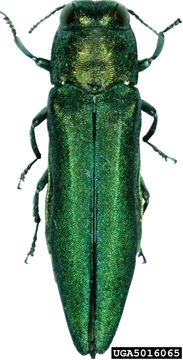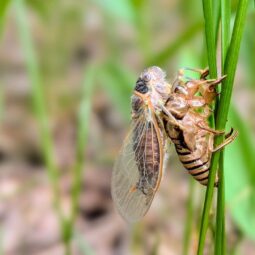
Credit: Tim McNary
Science & Songs of Katydids, Cicadas, etc. (start time: 3:08) It’s the time of year to savor listening each night to the pulsating and clicking sounds of katydids, cicadas, crickets and other straight-winged insects, all crying out for a mate. Soon, with the first big frost, the songs, along with the arthropods themselves, will disappear. In this week’s show, a longtime arthropod expert, Tim McNary, talks with host Susan Moran about things like, who are these small yet very vocal insects? What’s their life cycle like? What body parts make those noises? What role do these vocal insects play in the broader ecosystem? McNary is a curator at the Gillette Museum of Arthropod Diversity at Colorado State University in Fort Collins. Previously, he worked at the U.S. Department of Agriculture in the field of grasshopper and locust management.
Hosts: Susan Moran, Joel Parker
Show & Executive Producer: Susan Moran
Engineer: Joel Parker
Listen to the show here:
Podcast: Play in new window | Download (Duration: 26:52 — 36.9MB)
Subscribe: RSS



 COP16: Hope & Hurdles (start time: 1:20) On this week’s show, host Susan Moran interviews two conservation biologists at Colorado State University —
COP16: Hope & Hurdles (start time: 1:20) On this week’s show, host Susan Moran interviews two conservation biologists at Colorado State University — 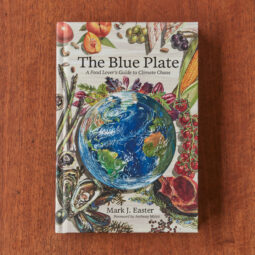 The Blue Plate in a Red-hot World (start time: 7:46) While adding cream to your morning cup of coffee, or digesting the hamburger that you grilled last night, you might not have been asking yourself, What’s the carbon footprint of these ingredients and meals? Understandable. Our guest today, ecologist
The Blue Plate in a Red-hot World (start time: 7:46) While adding cream to your morning cup of coffee, or digesting the hamburger that you grilled last night, you might not have been asking yourself, What’s the carbon footprint of these ingredients and meals? Understandable. Our guest today, ecologist 

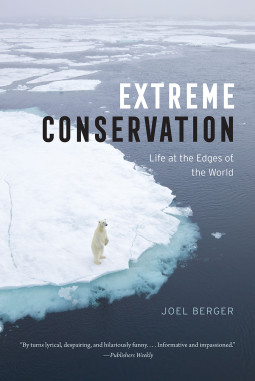 Conservation on the Edges (start time: 13:26) Charismatic predators like polar bears, grizzlies, and tigers, get lots of attention, and for good reason. But many lesser known species, particularly those living in extreme environments–including muskoxen, wild yaks, takins and saigas–are also important species. They have been the research focus of
Conservation on the Edges (start time: 13:26) Charismatic predators like polar bears, grizzlies, and tigers, get lots of attention, and for good reason. But many lesser known species, particularly those living in extreme environments–including muskoxen, wild yaks, takins and saigas–are also important species. They have been the research focus of 


 This week’s How On Earth offers two features:
This week’s How On Earth offers two features: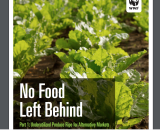 Fixing Food Waste (start time: 17:59) We’re all guilty of it: waste. Tossing out peaches, broccoli and other food that has gone bad in the fridge. Or leaving pasta on our plate untouched at an Italian bistro. More than one-third of all food that is produced in the United States is wasted – in the field, at restaurants, in our own kitchens. The conservation organization World Wildlife Fund recently published a report on the huge environmental and health impacts of food waste, and on what can be done to reduce waste, and ultimately preserve grasslands and other natural habitat. Monica McBride, manager of
Fixing Food Waste (start time: 17:59) We’re all guilty of it: waste. Tossing out peaches, broccoli and other food that has gone bad in the fridge. Or leaving pasta on our plate untouched at an Italian bistro. More than one-third of all food that is produced in the United States is wasted – in the field, at restaurants, in our own kitchens. The conservation organization World Wildlife Fund recently published a report on the huge environmental and health impacts of food waste, and on what can be done to reduce waste, and ultimately preserve grasslands and other natural habitat. Monica McBride, manager of 


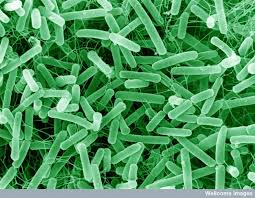

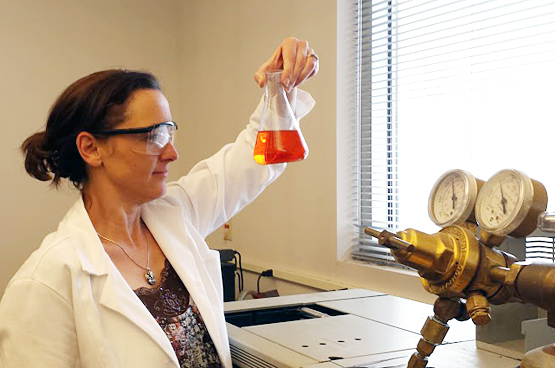
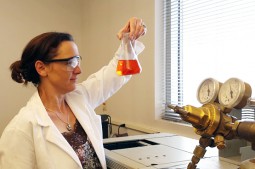

 Baseball Vision (starts at 5:42): The major league baseball season is now in full “swing.” Fans may take it for granted that these professional athletes are in top physical condition. What’s less known is how important it is for baseball players to have perfect eyesight. Batters in particular have some of the best vision in the world. To find out how scientists know this, and study it, and even make it better, How on Earth’s Shelley Schlender last month headed down to spring training in Arizona. There, she caught up with two of the nation’s top experts on the science of vision, and sports.
Baseball Vision (starts at 5:42): The major league baseball season is now in full “swing.” Fans may take it for granted that these professional athletes are in top physical condition. What’s less known is how important it is for baseball players to have perfect eyesight. Batters in particular have some of the best vision in the world. To find out how scientists know this, and study it, and even make it better, How on Earth’s Shelley Schlender last month headed down to spring training in Arizona. There, she caught up with two of the nation’s top experts on the science of vision, and sports.